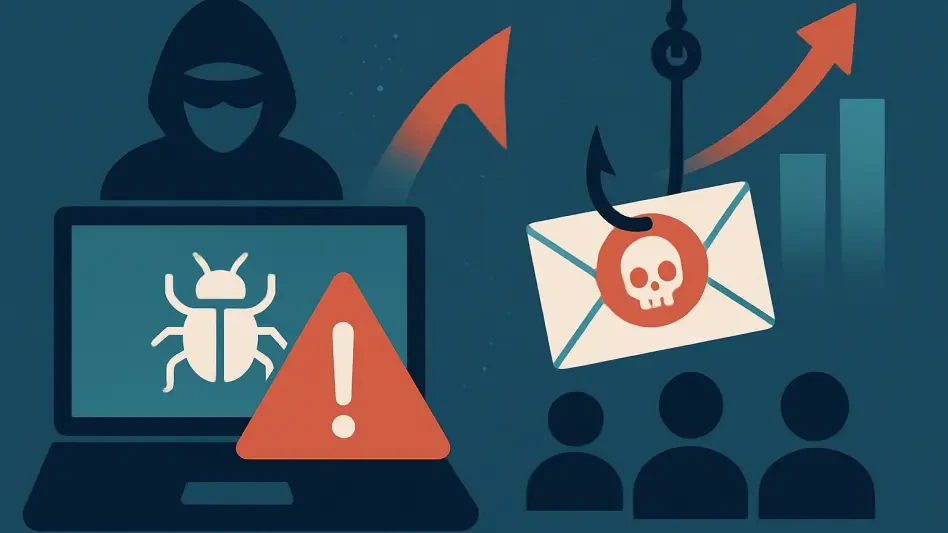The ever-expanding integration of digital technology into national security is exposing critical infrastructure to a rising tide of cyber threats that test existing security protocols. A recent breach involving the Director of National Intelligence (DNI) of the United States, Tulsi Gabbard, highlights the vulnerabilities within governmental cybersecurity. As government officials become increasingly dependent on digital tools, the need for robust digital security measures becomes paramount. This incident reveals not only the personal digital security lapses of influential figures but also the broader implications of such breaches on national security.
The Pervasive Risk of Password Reuse
Password Compromise and Its Consequences
The breach involving Tulsi Gabbard highlights ongoing vulnerabilities, emphasizing that password reuse is a persistent weakness in digital security that poses critical risks to individuals with access to high-value information. Between 2012 and 2019, there were widespread leaks of passwords from popular digital platforms, some of which belonged to Gabbard. The exposed passwords revealed that she, like many others, reused the same passwords for multiple accounts. While seemingly innocuous, this practice dangerously links unrelated accounts, amplifying risks as a breach of one account can easily lead to breaches of others.
In Gabbard’s case, despite her passwords not being rudimentary, they fell short of being considered robust by modern standards. Security experts have long cautioned against the reuse of passwords due to the potential for cascading security failures. For someone in Gabbard’s position, managing sensitive national security information, the implications of a breach are magnified. Even though her leaked passwords did not directly lead to a compromise of classified information, they serve as a stark reminder of the implications of lax password security practices, especially at the highest levels of government.
Broader Implications for National Security
The incident underscores the broader trend of sophisticated cyber threats targeting key individuals in the U.S. government, with potential repercussions beyond personal account security. When examining the role of a DNI, who interacts with major intelligence agencies, the stakes rise considerably. Although there is no evidence that classified information was accessed during the breach, the possibility remains concerning. If attackers gained access to crucial accounts, it could lead to devastating national security consequences.
This episode demonstrates the necessity of adopting stringent cybersecurity measures to prevent unauthorized access, ensuring the security of vital national infrastructure along with personal accounts. With cyber threats continually evolving in complexity, policymakers must stay vigilant, applying advanced security technologies and protocols to thwart malicious efforts. Therefore, reinforcing cybersecurity standards becomes indispensable to safeguard national interests from digital incursions.
Strategies for Strengthening Cybersecurity Measures
Advanced Security Technologies
In response to growing digital threats, cybersecurity experts advocate adopting advanced security technologies, particularly for individuals handling sensitive information. Enhancing password complexity and uniqueness across platforms forms the foundation of a robust security strategy. Additionally, implementing two-factor authentication (2FA) is a widely recommended measure that provides an additional layer of protection, helping to prevent unauthorized access even when passwords are compromised. As an extra precaution, some organizations adopt multi-factor authentication methods, which further secure systems by requiring more than one form of verification.
Apart from traditional solutions, emerging technologies like passkeys, which use biometrics for verification, are gaining traction. Providing a level of security that personal passwords cannot, these technologies integrate with physical devices for enhanced protection against unauthorized logins. Companies like Microsoft and Apple are increasingly incorporating these solutions into their systems, setting a precedent for secure technology adoption that governments should mirror to protect against future cyber threats.
Training and Awareness Initiatives
Following the breach impacting Gabbard’s accounts, there has been a notable push for comprehensive training programs aimed at strengthening cybersecurity hygiene among government personnel. Educating staff about safe digital practices, such as avoiding password reuse and understanding phishing attack indicators, is essential in cultivating a security-conscious environment. By integrating ongoing education into regular training sessions, organizations and government bodies can significantly reduce the susceptibility of their employees to cyber threats.
Tools like password managers help personnel develop strong, unique passwords with ease, offering an effective way to manage digital credentials securely. By making these tools available and encouraging their use across governmental departments, cybersecurity vulnerabilities can be mitigated. Consistently updating and revising cybersecurity measures through training not only addresses emerging threats but also anticipates them by fostering an informed, vigilant government workforce capable of navigating an ever-evolving digital landscape.
The Road Ahead for Cybersecurity
The continuous evolution of digital technology within national security frameworks is leading to increased exposure of vital infrastructure to cybersecurity threats, challenging current security measures. A significant cyberattack involving Tulsi Gabbard, the United States’ Director of National Intelligence (DNI), underscores the vulnerabilities present in governmental cybersecurity systems. This breach serves as a crucial reminder that as government personnel grow more reliant on digital tools, the necessity for enhanced digital security strategies becomes undeniable. Such incidents highlight not only the gaps in personal cybersecurity practices of notable officials but also the far-reaching consequences for national defense. The reliance on digital platforms requires stringent safeguards to protect sensitive information, thereby preventing potential damage to national interests. The urgency of fortifying cybersecurity measures is evident, as these breaches could profoundly impact the stability and integrity of governmental operations.








